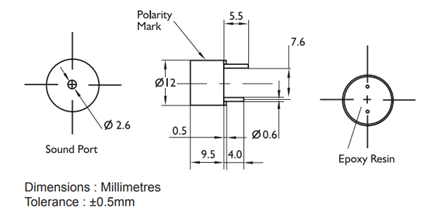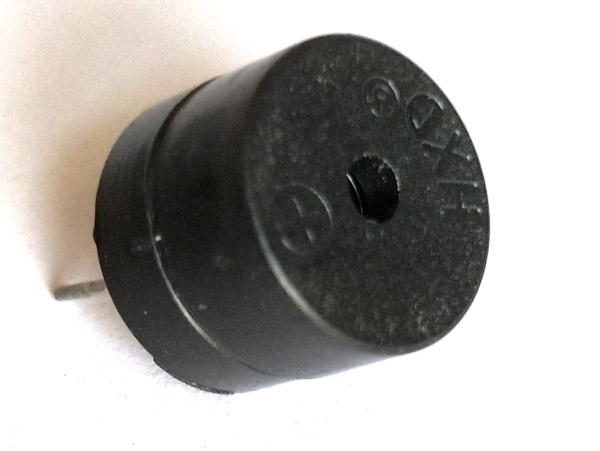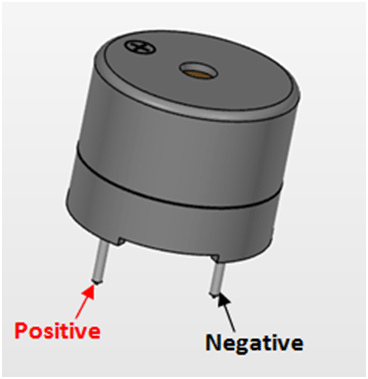Active Passive Buzzer
Buzzer Pin Configuration
|
Pin Number |
Pin Name |
Description |
|
1 |
Positive |
Identified by (+) symbol or longer terminal lead. Can be powered by 6V DC |
|
2 |
Negative |
Identified by short terminal lead. Typically connected to the ground of the circuit |
Buzzer Features and Specifications
- Rated Voltage: 6V DC
- Operating Voltage: 4-8V DC
- Rated current: <30mA
- Sound Type: Continuous Beep
- Resonant Frequency: ~2300 Hz
- Small and neat sealed package
- Breadboard and Perf board friendly
Equivalents for Passive Buzzer
Piezo Electric buzzer, Speaker, Active Passive Buzzer with Module
How to use a Buzzer
A buzzer is a small yet efficient component to add sound features to our project/system. It is very small and compact 2-pin structure hence can be easily used on breadboard, Perf Board and even on PCBs which makes this a widely used component in most electronic applications.
There are two types of buzzers that are commonly available. The one shown here is a simple buzzer which when powered will make a Continuous Beeeeeeppp.... sound, the other type is called a readymade buzzer which will look bulkier than this and will produce a Beep. Beep. Beep. Sound due to the internal oscillating circuit present inside it. But, the one shown here is most widely used because it can be customised with help of other circuits to fit easily in our application.
This buzzer can be used by simply powering it using a DC power supply ranging from 4V to 9V. A simple 9V battery can also be used, but it is recommended to use a regulated +5V or +6V DC supply. The buzzer is normally associated with a switching circuit to turn ON or turn OFF the buzzer at required time and require interval.
Applications of Buzzer
- Alarming Circuits, where the user has to be alarmed about something
- Communication equipments
- Automobile electronics
- Portable equipments, due to its compact size
2D Model of Buzzer











